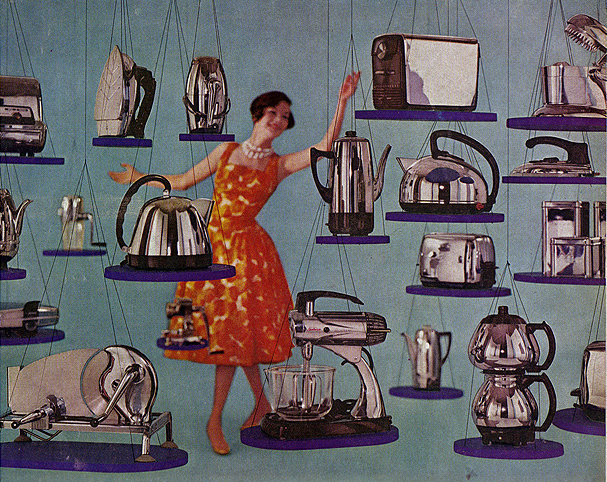Critical analyses of domestic technological culture have emphasized the impact of domestic technologies on intensifying women’s labor and reinforcing its privatization within the home, all the while being marketed as laborsaving devices. Drawing from the ways the marketing of domestic technologies framed the home as a space in need of technological administration, this article offers a Marxist feminist analysis of online surveillance during leisure time, examining how the marketing of technologies for both domestic labor and online leisure helps produce relationships between subjects and technologies that double as vehicles for capital accumulation. The article argues that we should look to the history of domestic technological design to understand the ways online surveillance and data collection are used to produce revenue and impact consumer behavior, given that both domestic technologies and contemporary information technologies work to rationalize non-waged time. The article begins with the Taylorization of the home popularized in 1912, followed by the rise of domestic technologies in the 1950s, in order to demonstrate how the ideological framing of the home as a space in need of rationalization informs the marketing of today’s personalization technologies. The marketing of personalization technologies reproduces the racialized and gendered logic of machine subordination that framed domestic technologies for the home in the 20th century. The article concludes with a discussion of how Marxist feminism is a useful theoretical framework for understanding and developing a political response to online data collection, given that both the domestic sphere and online leisure time are traditionally understood to be outside the workday, and therefore supposedly outside the scope of capitalist workplace relations of surveillance and exploitation.
